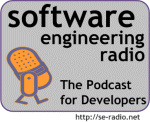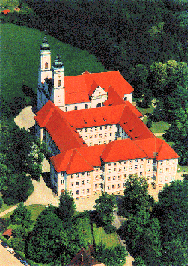Call for Papers
Download short version of Call for Papers as PDF [97 KB].
You have never written a Pattern before. Why should you do so?
- Patterns are a great way of getting a new view on things that you think you know by heart.
- Patterns are a way to pass on your knowledge to others in an easily understandable way.
- Patterns make your thoughts available to others to give you feedback.
To get an easy start into pattern writing, download our introductory information pack [672 kb].
How can you benefit from this?
Prepare a paper and submit it to a Pattern conference. The premier pattern conference for Europe is EuroPLoP, the next one held in July 2012. To participate please submit your paper until February 20.
EuroPLoP 2012
17th Conference on Pattern Languages of Programs
July 11-15, 2012
Irsee Monastery, Bavaria, Germany
http://www.europlop.net
Experienced pattern authors are of course also welcome to join EuroPLoP. If you ask them they will confirm that unlike for other conferences
Your paper does not need to be perfect!
The core of EuroPLoP is a series of writers' workshops where authors work together to improve their papers. Before patterns or other papers are accepted for a writers' workshop, they are shepherded (non-anonymously). This means that an experienced author will discuss your submission with you, so that you can refine your paper prior to the conference. All submissions will be peer-reviewed.
After shepherding papers may be accepted directly into a conference workshop, or receive a round of additional face-to-face shepherding at the conference itself. Papers reaching the required standard will be considered for workshop review on the final day of the conference.
First-time pattern authors are invited to download the introductory information pack [672 kb] or contact the conference chairs (see below) for further questions.
Here you can find the important dates on the way to EuroPLoP 2012.
Final Proceedings published in the ACM Digital Library (approval pending).
Papers discussed at a writer's workshop at this conference qualify for submission to the new journal Transactions on Pattern Languages of Programming published by Springer.
How does it work?
The conference offers a variety of workshops that allow you to learn about patterns, to receive feedback on your own work, and to discuss with fellow enthusiasts. It is a unique venue to exchange knowledge about best practices and learn from other experts in various fields. These fields include
- software
- pedagogy
- business and organization
- HCI
- ...
Join us for an experience that will combine outstanding technical events with a visit to the lovely Bavarian countryside. It is a carefree escape that gives you room to develop new ideas.
Submission Categories
EuroPLoP accepts papers containing patterns or pattern languages as well as experience reports and papers related to the theory and use of patterns.
Submissions should fall into one of the following categories:
1. Pattern papers
Short papers (5 to 10 pages) containing one or more patterns. Longer pattern languages or sequences and work-in-progress papers will also be considered for inclusion.
2. Papers on applying patterns
Papers on the application of patterns in practice. The focus of these papers should be on applications of patterns in industrial projects, as well as on systematizing the application of patterns. They should stimulate a general discussion on how to disseminate the patterns literature more widely in higher education and training. This track hopes to provide visibility to research attempts for integrating patterns in industrial practices.
3. Focus group proposals
Focus groups are free-format discussion groups or workshops lasting approximately three hours. They are designed to bring together people who are interested in a challenging topic related to patterns or proven practices. Non-conventional ideas such as goldfish bowls are welcome. Focus Group proposals are invited in advance of the conference. Those submissions considered relevant and of sufficient quality will be provisionally accepted to the conference.
Some more information on Shepherding
The shepherding process is essentially a reviewing process. The Shepherd guides the sheep into a more mature understanding of his or her pattern. Shepherds are individuals, with experience in pattern writing, assigned to an author's paper with the expressed interest in helping the author improve the pattern. Shepherds also have experience with the shepherding procedure, either having been a shepherd before or a sheep (an author).
Shepherding is about improving the pattern itself, while the Shepherd maintains that the author is the one doing the pattern writing. The shepherding process is done before the paper is to be presented at a conference.
Submission Procedure
There is a three stage submission process:
All accepted papers will receive in-depth shepherding by an experienced pattern author before the conference.
Initial submissions should be made by February 20, 2012. Papers will be assessed for suitability. Accepted papers are then assigned a shepherd who will help the author improve the paper for several weeks.
Half way through the shepherding process, on April 16, authors are expected to submit a second draft. The paper will be assessed for quality and the author's willingness to accept feedback considered. This review will determine whether a paper is accepted to the conference or not.
Authors and shepherds are expected to continue working on the paper until June 18. Final drafts for the conference should be submitted on this date.
Authors of accepted papers are expected to register for the conference before the close of early-bird registration on May 21. Failure to do so may result in acceptance being withdrawn. In the case of papers with multiple authors at least one author is expected to register to attend by the close of early bird registrations.
To submit your paper in the first instance, please visit the submission page on this website.
Conference Organization
Program Chair
Andreas Fiesser, Germany,
Conference Chair
Christian Kohls, Germany,
Please feel free to contact us about any questions on the conference, Pattern writing or the introductory information pack [672 kb].


